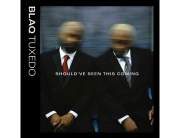Storytelling has emerged as a powerful tool for companies looking to forge meaningful connections with their audience.
This article will examine the transformative impact of a well-crafted brand narrative on business elevation. From captivating attention to fostering loyalty and driving growth, each facet of a compelling brand story plays a pivotal role in shaping a business’s success and sustainability.
1. Grab and Hold Attention
A compelling brand story is your gateway to capturing and retaining the attention of your target audience in a sea of competing messages. A well-crafted narrative has the power to captivate consumers, pique their interest, and differentiate your brand in a crowded marketplace.
John Gumas, CEO of Gumas Advertising, says, “To grab and hold attention, your brand must tell a compelling story that is relevant and appealing. Stories are 22 times more memorable than a list of facts. A good story can be told over and over again and still get attention.”
Engaging storytelling techniques, such as using vivid imagery, relatable characters, and authentic experiences, can help your brand story stand out and connect with consumers on a personal level. By focusing on creating a narrative that grabs attention and holds it, businesses can forge deeper connections with their audience, drive brand loyalty, and ultimately elevate their brand presence in the market.
2. Motivate Audiences To Interact
Additionally, your brand story acts as a catalyst for motivating audiences to engage with your brand on a deeper level. It should inspire them to interact, participate, and become active participants in your brand narrative.
“It’s not enough just to tell a good story. Today’s connected consumer embraces a two-way dialogue. Brands that actively listen to social networks and respond with real-time content have exploded in popularity recently,” notes Christel Quek, co-founder and COO of BOLT.
Motivated audiences are more likely to interact with your brand across various touchpoints, from social media engagement to participation in brand events and loyalty programs. When you leverage the motivational aspects of your brand story, you can cultivate a loyal following, drive customer advocacy, and create a sense of belonging that strengthens brand-consumer relationships.
3. Build Trust and Credibility
By sharing your brand’s values, mission, and journey through storytelling, you can create a narrative that resonates with your audience, instills confidence, and fosters a sense of reliability and credibility.
“Transparency and authenticity in brand storytelling are essential elements that cultivate trust and credibility,” says Viktor Sobiecki, Chief Technological Officer at Digital Forensics Corp, which offers services like online blackmail help. “They form the foundations of lasting connections with consumers.”
Building trust through storytelling involves aligning your brand narrative with your actions, values, and commitments. Consistently delivering on the promises embedded in your brand story helps you reinforce trust, enhance credibility, and differentiate your brand as one that is worthy of consumer loyalty.
4. Create Brand Loyalty

Photo Source: Adobe Stock
Speaking of consumer loyalty, your story has the power to cultivate brand loyalty by forging deep emotional connections with consumers. Your consistent messaging contributes to a sense of attachment and builds long-term relationships based on trust and shared values.
“A brand story that resonates with customers can transform them into loyal brand enthusiasts, driving repeat business and advocacy. When customers resonate with your brand narrative on a personal level, they are more likely to become loyal consumers who choose your brand consistently over competitors,” notes Saad Alam, CEO and Co-Founder of Hone Health, a company whose services include ordering testosterone online.
Remember that brand loyalty is not just about repeat purchases; it’s about creating a strong bond that transcends transactional relationships. Building brand loyalty through storytelling is a strategic investment in long-term customer relationships and sustainable business growth.
5. Drive Emotional Connection
Branding has the remarkable ability to create profound emotional connections with consumers and resonate with their feelings, beliefs, and experiences on a personal level. By infusing your brand narrative with emotion, you can elicit strong responses and establish a deep connection with your customers that goes beyond product or service offerings.
According to Brandon Adcock, Co-Founder and CEO of Nugenix, the maker of Instaflex Advanced. “Emotional storytelling has the power to touch hearts, spark empathy, and foster authentic connections with consumers. All of this drives brand loyalty and advocacy and humanizes your company in the eyes of the consumer.”
Emotional connections are at the core of brand-consumer relationships. They influence purchasing decisions, brand perceptions, and long-term loyalty. Most importantly, they establish a sense of belonging that keeps customers engaged and committed to the brand over time.
6. Differentiate Your Brand
Crafting a distinct and compelling brand story is a powerful strategy to differentiate your brand from competitors in a crowded marketplace. When you showcase your brand’s values, personality, and distinct narrative, you can carve out an identity that sets you apart and leaves a memorable impression that lingers long after the initial interaction.
“A distinctive brand story is a strategic asset that will help your brand stand out in crowded marketplaces. It will also communicate your special value proposition effectively, driving brand preference and loyalty,” highlights Adam Lasky, Head of Marketing at Teach Me To, a company that offers golf lessons in local communities.
In a competitive market where consumers are bombarded with choices, a well-defined brand story that highlights what makes your brand special can be a powerful tool for attracting and retaining customers. Through storytelling, you can create a competitive advantage, build brand equity, and position your brand as a compelling choice.
7. Enhance Brand Recall
An engaging brand story plays a crucial role in enhancing brand recall and recognition among consumers. This creates a memorable imprint in their minds that distinguishes your brand from competitors.
As Bob Craycraft, CEO of Cadence, puts it, “A compelling brand story creates a lasting impression in the minds of consumers. Crafting a narrative that is compelling, consistent, and resonant with your audience will help you increase brand visibility and strengthen brand recall.”
Brand recall is essential in a cluttered marketplace where consumers see countless brand messages daily. Leveraging storytelling techniques that are memorable, relatable, and emotionally resonant helps businesses create a lasting impact that leads to increased brand awareness and customer engagement.
8. Strengthen Employee Engagement
Businesses can inspire and align employees toward a common purpose by sharing a compelling narrative that embodies the company’s values, culture, and vision.
“An authentic brand story is an effective unifying force,” adds Brianna Bitton, Co-Founder of O Positiv, which offers vitamins like the MENO menopause supplements. “It’s useful for engaging employees by connecting them to the company’s mission and values, which can contribute to a sense of ownership and commitment.”
Strengthening employee engagement through storytelling involves communicating the company’s history, successes, and future aspirations in a way that resonates with employees on an emotional level. When employees feel connected to the brand story, they are more likely to be motivated, productive, and committed to achieving the organization’s goals.
9. Increase Brand Value
A strong brand story has the potential to significantly enhance the perceived value of your brand in the eyes of consumers. As a result of this, your brand will be elevated beyond just products or services to embody a meaningful and impactful entity.
Greg Hannley, Founder and CEO of Soba Mesa, says, “Your brand story adds depth and value to your messaging. It influences consumer perceptions and positioning the brand as a premium choice in the market.”
Increasing brand value through storytelling involves crafting a narrative that communicates your brand’s specific selling points, core values, and vision in a compelling and authentic manner. Communicating the essence of your brand through storytelling will allow you to create a narrative that resonates with consumers, differentiates your brand, and enhances its perceived value in the marketplace.
10. Amplify Marketing Effectiveness
A compelling brand story is a potent tool for amplifying marketing effectiveness. With a solid story, you can enhance the impact of promotional efforts and resonate meaningfully with target audiences.
“Incorporating a captivating brand story into marketing initiatives elevates engagement levels and resonates with consumers,” notes Shaunak Amin, CEO and Co-Founder of Stadium. “It amplifies the effectiveness of marketing strategies, enhancing brand visibility and market impact.”
Amplifying marketing effectiveness through storytelling involves crafting narratives that are authentic, relatable, and aligned with consumer preferences. By leveraging storytelling’s emotional appeal, businesses can create compelling marketing messages, capture audience interest, and drive desired actions.
11. Foster Long-Term Growth
Fostering a compelling brand story is instrumental in laying the foundation for long-term growth and sustainability within a competitive market landscape. Creating a narrative that resonates with consumers, aligns with organizational values, and differentiates the brand helps businesses establish a solid framework for sustained success.
“Think of your brand story as a guiding compass. It can steer businesses towards long-term growth by building customer loyalty, brand advocacy, and market relevance,” highlights Jack Savage, Chief Executive Officer at Everyday Dose, a company known for its mushroom coffee.
When you nurture a brand story that evolves with shoppers’ changing needs and expectations, you can easily adapt to market shifts. Investing in the development and communication of a compelling brand narrative is a strategic approach that drives immediate results and sets the stage for enduring success and expansion in the long run.
Building Bridges and Driving Success
When it comes to marketing and brand development, storytelling stands out as a potent tool that transcends traditional strategies to build connections and propel businesses toward success.
Cody Candee, Founder and CEO of Bounce, concludes, “Stories are the best, easiest way to build a brand identity. Once you have one, you’ll be able to work on fostering relationships that withstand the test of time.”
Remember, embracing the art of storytelling differentiates brands in a crowded marketplace while cultivating loyalty, trust, and value. All of this work lays the groundwork for sustained success and prosperity.







Add Comment